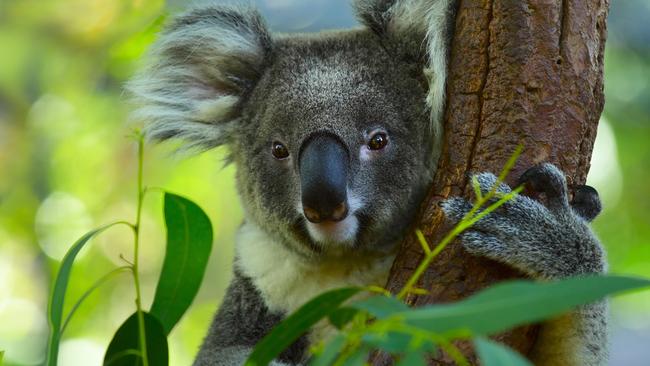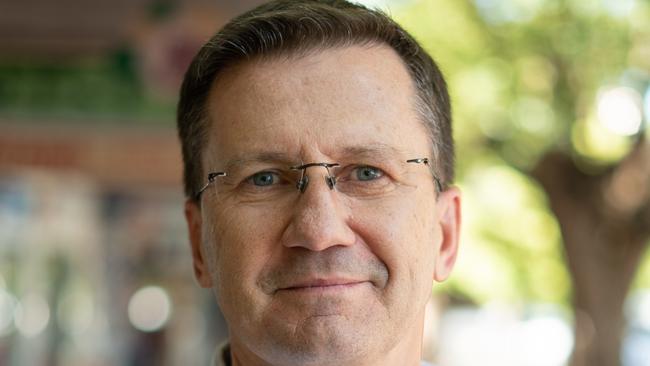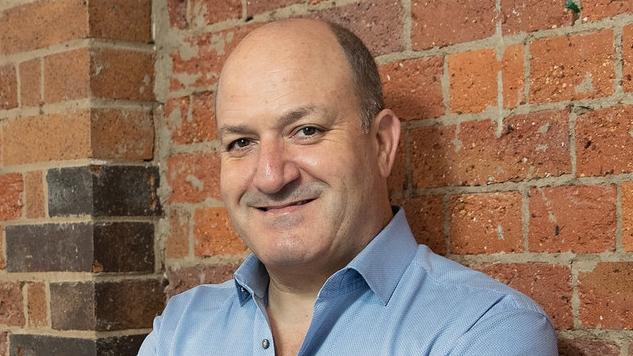A new Queensland investment fund aims to help save koalas by buying up land near Brisbane
There’s a new way to help save Australia’s iconic endangered koalas thanks to a special investment fund.

City Beat
Don't miss out on the headlines from City Beat. Followed categories will be added to My News.
We all know the koalas are in big trouble.
Their numbers have plummeted from an estimated 10 million at the time of European settlement to fewer than 80,000 today.
What you may not know is that there’s now a new way to invest to help save one of Australia’s most endangered iconic animals.
A Queensland investment group has just launched the Koala Farmland Fund, which will establish a portfolio of five rural properties within 150 km of Brisbane to provide “biodiversity offsets’’ to developers who destroy native habitats.
The fund is one of five now under the control of Country Asset Management, a Chinchilla-based business founded three years ago by Rob Hart to offer “climate resilient’’ investments to eco-focused punters.

Hart, who previously toiled for the likes of Shell, Origin and Flight Centre, grew up in the area and still runs cattle on his land. His funds now own eight properties covering about 75,000ha.
Launched last month, the koala fund is a first-of-its kind and closes this Friday with an expectation that it will attract between $5m and $10m from investors. It’s the inaugural fund in a series that’s tipped to pull in about $20m.
Underpinning the logic of it all is the fact that state government regulations require property developers to mitigate or replace vegetation if they destroy koala habitats.
These developers can then either pay a fee for the offset, buy land to replace the trees or outsource the program to a third party to manage the offset.
Hart has structured the fund so that investors will benefit from multiple income streams on the properties in addition to the offset dollars.
Money is also expected to flow in from leasing land to graziers, growing trees for carbon credits, farmhouse rentals and eco-tourism.
He has forecast a solid rate of return, with an expected 2 per cent in distributions in the second year and 10 per cent annually beyond that.
Working with Hart to make it all happen is iPartners, which bills itself as an alternative asset investment platform.
The Sydney firm launched in 2017 and has raised more than $850m since then from an 8,000-strong investor base.
Meanwhile, on a lighter note about the leaf-munching gum tree dwellers, the gang at Brisbane’s iconic Lone Pine Koala Sanctuary this week unveiled a new logo for the riverside complex at Fig Tree Pocket.
They tapped ACG Creative in the West End to assist with the “strategic repositioning and rebrand’’ of what is the nation’s oldest and largest koala sanctuary.

IPO EXPECTED
A fast-growing Brisbane firm making a splash in the medical technology space is widely expected to go public later this year.
But James Scollay, who heads up Genie Solutions, remains tight-lipped about the possible IPO.
“We’re considering our options,’’ he told City Beat this week, refusing to elaborate.
The company, launched in the late 1990s by Dr Paul Carr, started off as a provider of desktop software for GPs to help them better manage their appointments, billing and other practice issues.
But the Fortitude Valley-based business, which now employs about 180 staff, has pivoted to a software-as-a-service model that’s now been taken up by about 4600 medical practices across Australia.
It recently just signed up its 1000th customer for a new cloud-based product called Gentu, which securely stores patient data and is designed to be used by specialists.
Scollay, a former senior figure at MYOB, came aboard in late 2017 and since then he’s more than doubled the size of the development team.
Nearly half of them are women, he notes, a notable accomplishment in the bloke-heavy tech sector.

Scollay believes medical professionals, often lampooned for their old-fashioned notepads and illegible writing, have been badly served by the tech sector until now.
“Doctors and medical specialists have an undeserved reputation for being luddites. That’s rubbish,’’ he said.
“These are smart people. It’s the industry servicing them that hasn’t kept up – and only ever offered them poorly developed products. We aim to change that.
“I’m a tech guy, not a health guy. I came into the health industry and was frankly pretty confronted by how antiquated the tech was. The ecosystem was disconnected, the marketplace was fragmented.
“While there was a massive user experience revolution going on in every other sector, the user experience in health care was a train wreck.”
Scollay’s arrival at the company nearly four years ago came just months after private equity mob IFM Investors paid $55m for a majority stake in the company.
Genie is now generating more than $30m in turnover a year, with annual growth pegged at about 20 per cent.
It earns recurring revenue from about 95 per cent of its clients and has a negligible churn rate of less than 2 per cent.
More specific financial details will be released if the float proceeds. But the most recently available figures from parent company Magic Carpet Pty Ltd shows it suffered a $1.5m net loss in the 2019 financial year.
Regardless of that, the company remains focused on seizing a bigger piece of the Australian e-health specialist software market, estimated to be worth more than $500m a year.
One of its rivals, Medical Director, just got acquired by Telstra Health last month in a $350m deal. That was more than twice what private equity firm Affinity Equity Partners paid for it only four years ago.




